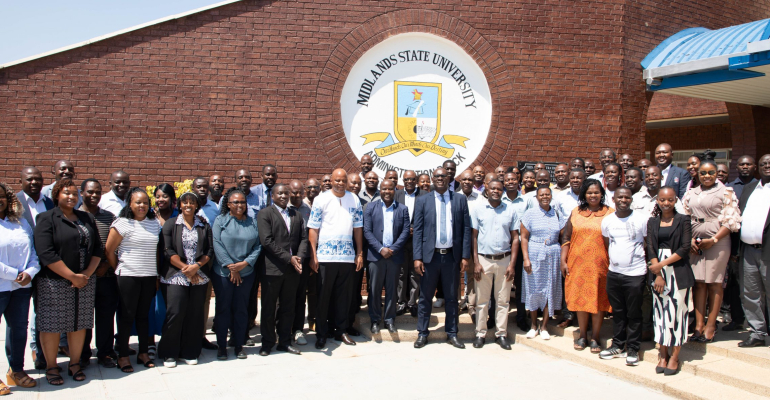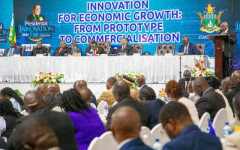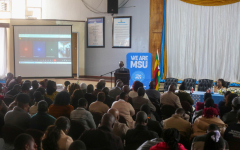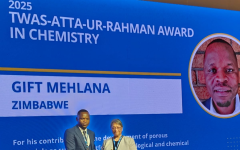MSU Ignites National Dialogue on the Future of Land Governance
October 17, 2025 2025-10-17 7:59MSU Ignites National Dialogue on the Future of Land Governance
On 15 October 2025, Midlands State University sparked a vital national conversation on land governance by hosting the landmark National Land Governance Conference in collaboration with Transparency International Zimbabwe and local authorities at its Gweru Main Campus, reaffirming its role as a crucible of solutions-driven research.
Convened by the University’s Centre for Public Policy and Devolution (CPPD) within the Faculty of Social Sciences, the two-day event galvanised a diverse coalition of academia, government policymakers, and civil society leaders.
Together, they embarked on a collective mission to dissect and refine the governance practices shaping the very bedrock of the nation: its land.
Under the compelling theme, “Land Governance in Zimbabwe – Institutions, Policies and Practices,” the conference provided an unprecedented platform for robust, solution-oriented dialogue.
Setting the tone for the proceedings, Deputy Dean of the Faculty of Social Sciences, Professor T. Marambanyika, welcomed delegates on behalf of Executive Dean Professor C. Hungwe.
He immediately underscored the Faculty’s pivotal role as a catalyst for national development, stating with conviction: “As a Faculty, we take immense pride in being a hub of innovation, critical inquiry and solution-driven research that seeks to respond to Zimbabwe’s pressing social, economic, and governance challenges.”
He further elaborated that through the strategic work of the CPPD, the University has cemented its reputation as an active arena for policy-oriented research, stakeholder dialogue, and evidence-based advocacy.
Echoing this sentiment, CPPD Coordinator Dr. Vincent Chakunda detailed the Centre’s tangible contributions.
He outlined its focused work in advancing evidence-based policymaking, capacity building, and facilitating essential multi-stakeholder dialogue on the interconnected issues of governance and devolution.
Delivering the keynote address, Pro-Vice Chancellor for Academic Affairs and Administration, Professor Mcebisi Maphosa, framed the conference as a critical juncture for national reflection.
He captured the collective ambition of the gathering, reflecting: “The conference aims to provide a holistic understanding of the complexities underpinning Zimbabwe’s land governance architecture and to propose reform-oriented insights that can help harmonise policy, strengthen institutions and foster social and economic equity.”
Given the profound centrality of land to Zimbabwe’s developmental trajectory, the discussions championed an inclusive, multi-sectoral approach, bringing together scholars, traditional leaders, local authorities, and development partners.
The conference agenda was both deep and wide, featuring distinguished presenters who explored interconnected themes from land law and policy coherence to corruption, accountability, and the escalating impact of climate change on land use.
In interactive sessions, participants engaged in spirited debates on critical issues such as youth access to land, transformative governance reforms, and the digital future of land administration.
Bringing the event to a powerful close, Professor Marambanyika issued a resonant call to action, urging delegates to translate the conference’s rich insights into tangible impact and to fortify institutions that champion inclusive and transparent land governance.
The conference concluded on an optimistic and resolute note, powerfully reaffirming a collective national commitment to forging a transparent, equitable, and sustainable system of land governance for the benefit of all Zimbabweans.







